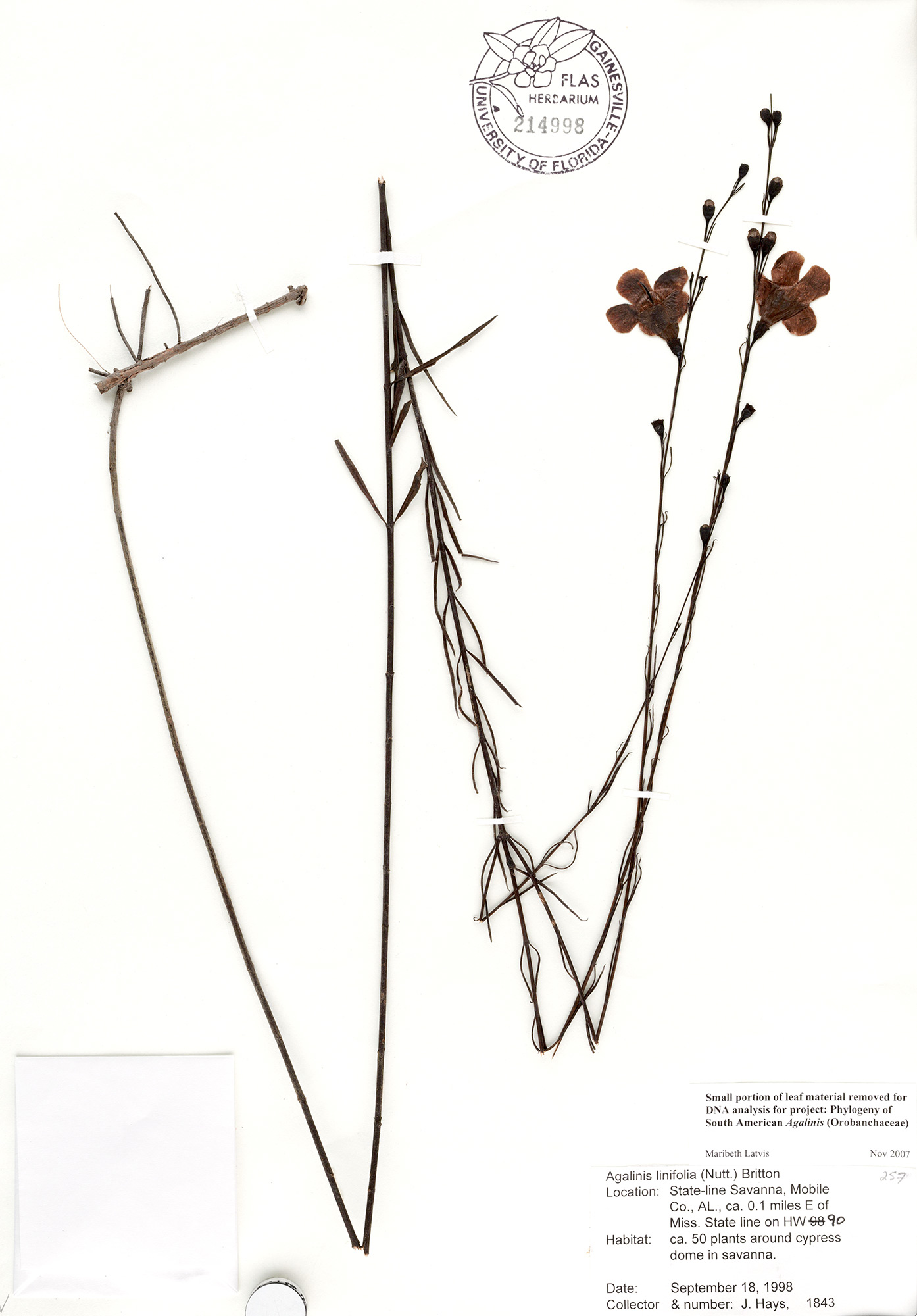Florida Museum graduate student Maribeth Latvis recently received a 2009 National Science Foundation Graduate Research Fellowship.
The award is given to exceptional students working in science, technology, engineering and research fields. Recipients receive a three-year annual stipend of $30,000, $10,500 for tuition and fees and $1,000 for travel.

UF herbarium specimen FLAS 214998 by Kathy M. Davis
Latvis is a Ph.D. student researching the systematics of the flowering plant genus Agalinis and its migration patterns between North and South America. The plants are hemiparasitic, meaning they steal water and nutrients from other plants but are still able to make their own food. Latvis is exploring the patterns of genetic changes over time including geographic and environmental data.
“I was surprised and humbled when I got the news that I had received an award,” said Latvis, who is supervised by Doug Soltis, chair of the University of Florida’s Botany department, and Pamela Soltis, Florida Museum curator of molecular systematics and evolutionary genetics.
“Maribeth is an outstanding student, and we are thrilled that she has been recognized with this prestigious NSF Fellowship,” Pamela Soltis said. “The fellowship will allow her to delve more deeply into her research on the evolution of parasitic plants, and it also provides opportunities for public outreach. We’re very excited for her.”
Latvis is collaborating on the study with Maile Neel of the University of Maryland, Vinicus Castro Souza, a Brazilian Agalinis expert and Luis Oliveria, a plant systematist from the Universidade Federal de Viçosa in Minas Gerais, Brazil.
“The fellowship will provide me with the freedom and resources to do field work and will allow me to take advantage of new genetic technologies at UF’s Interdisciplinary Center for Biotechnology Research,” Lativis said.
Since patterns of gene loss and modification aren’t fully understood in hemiparasitic plants, Latvis hopes her research will unveil more information about the general evolution of parasitism.